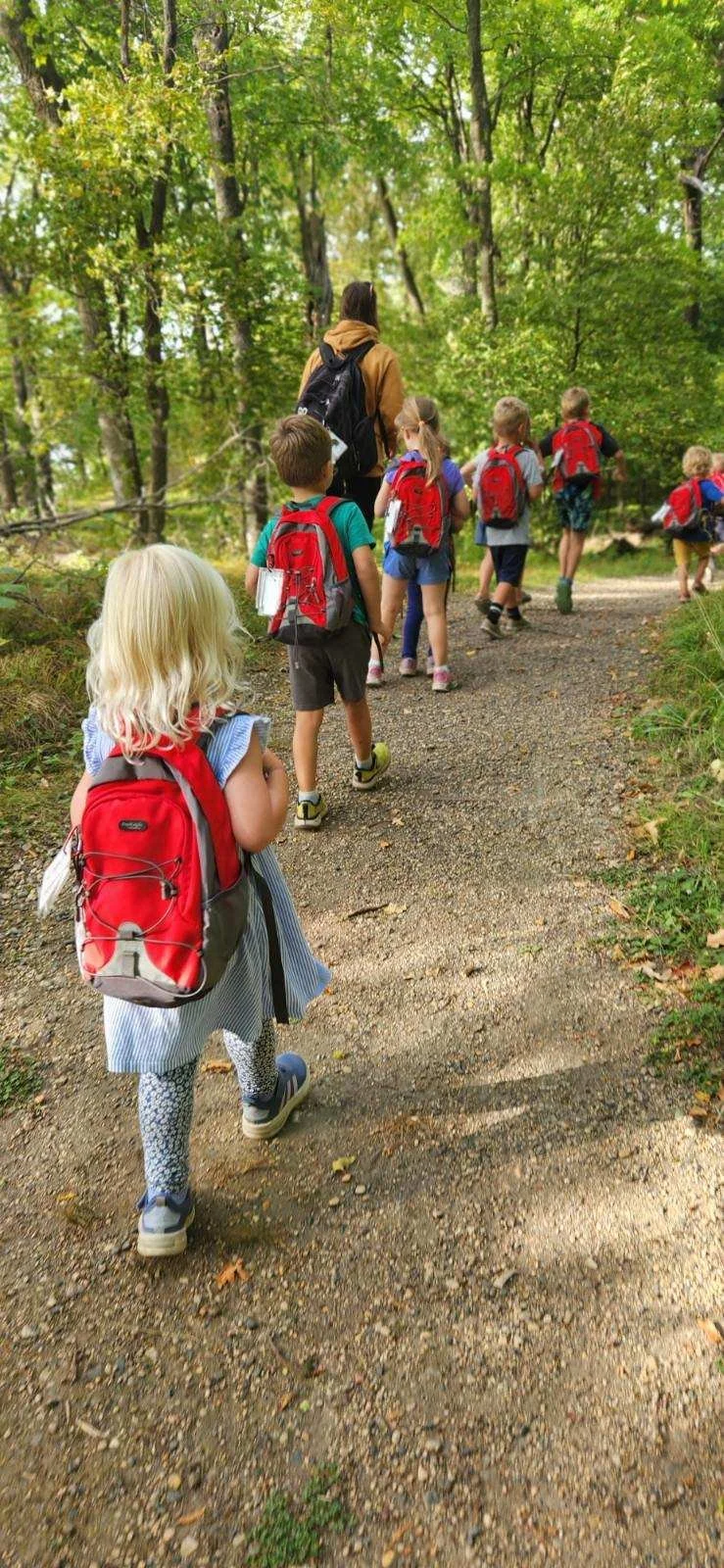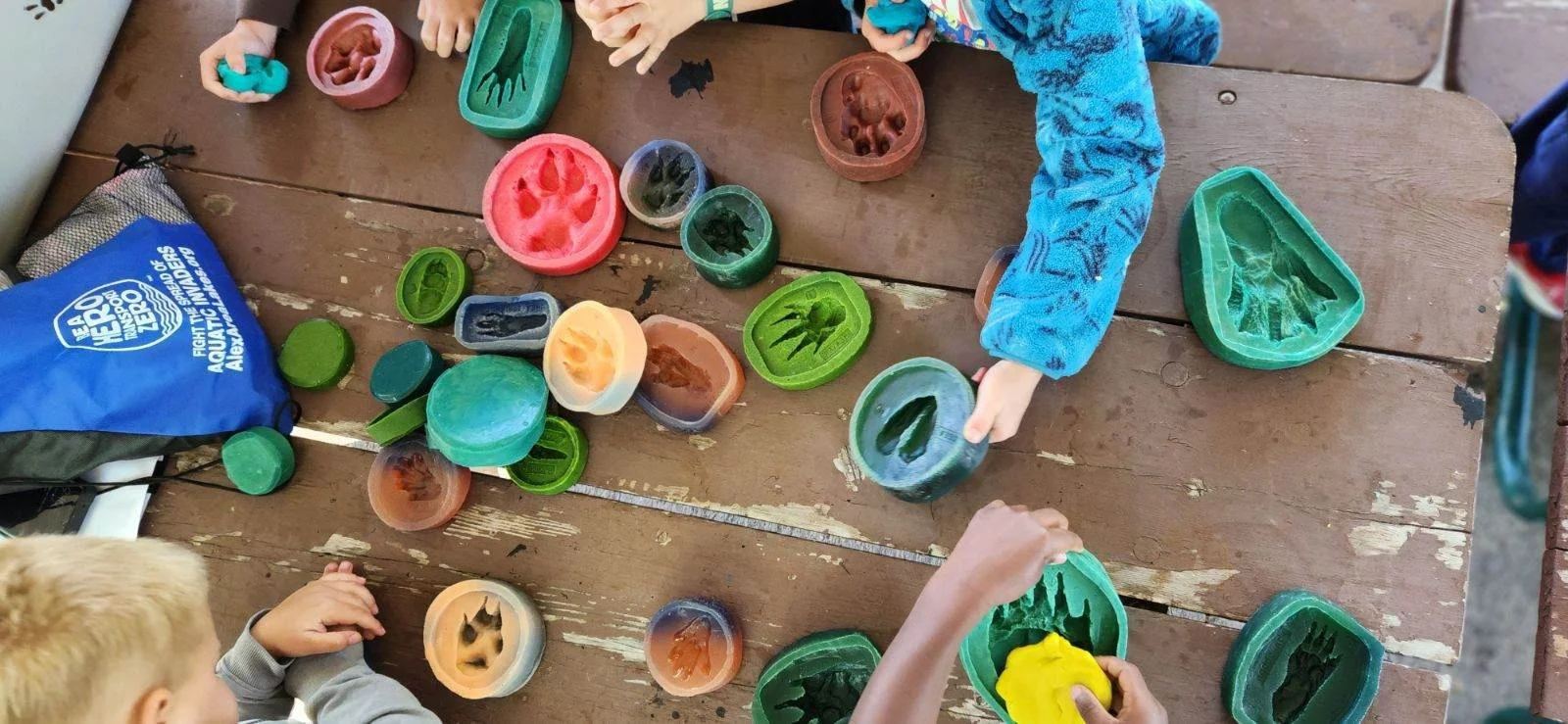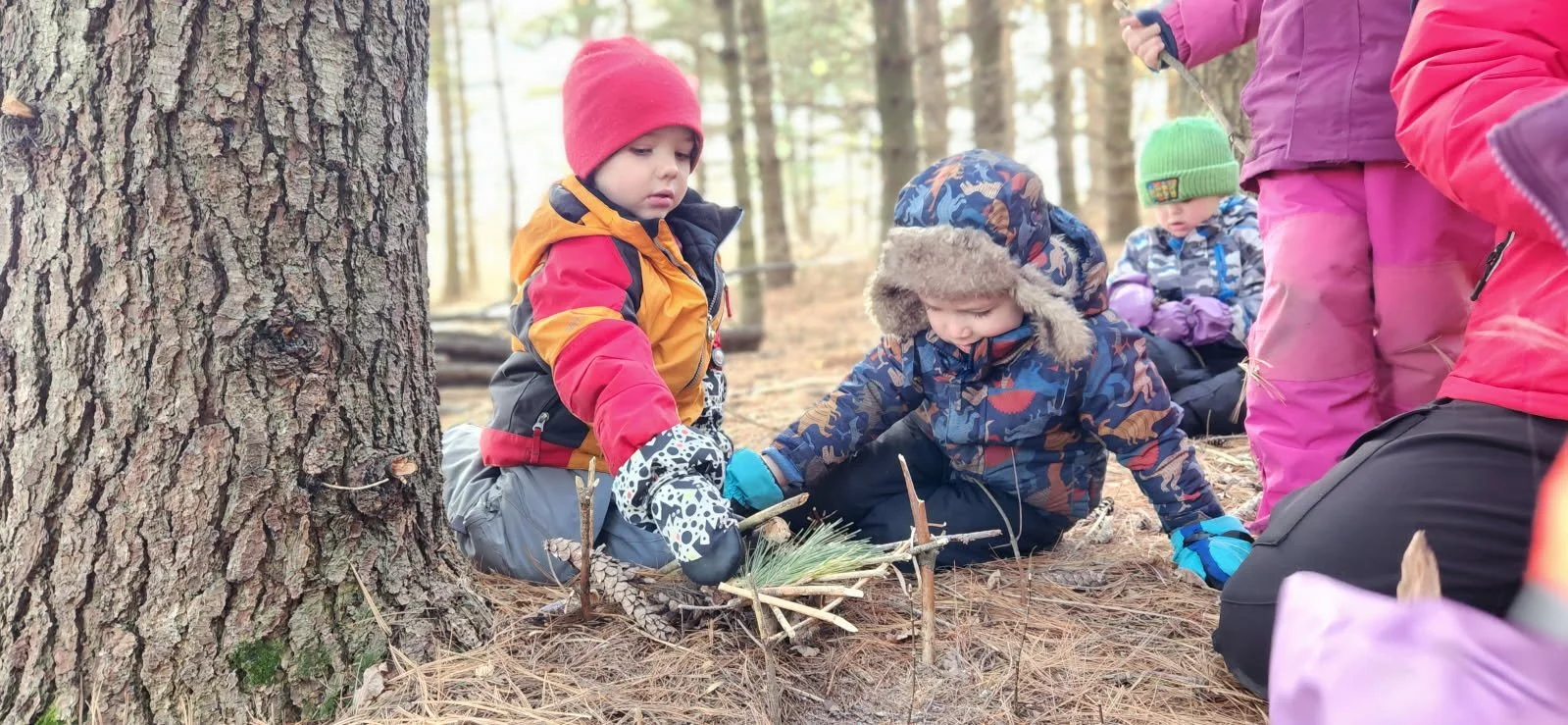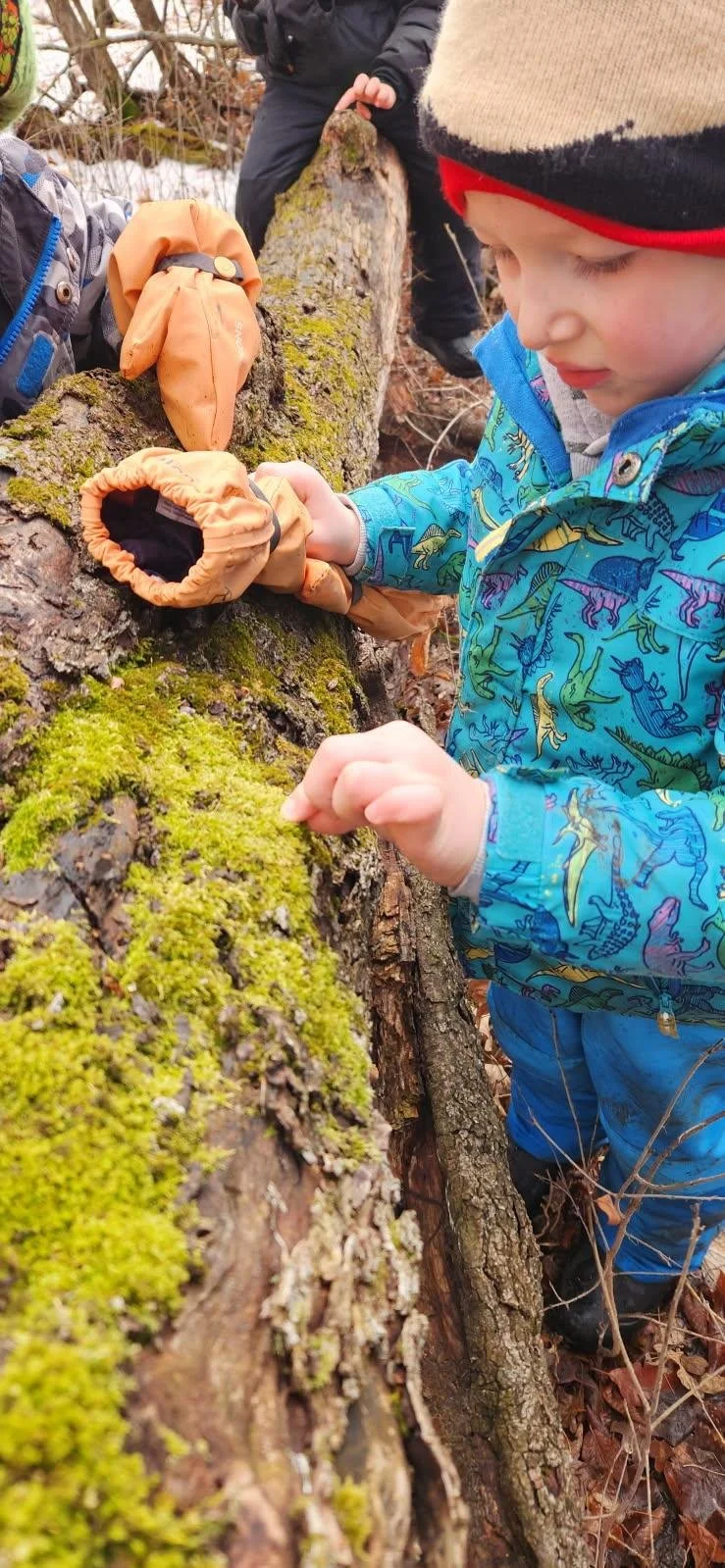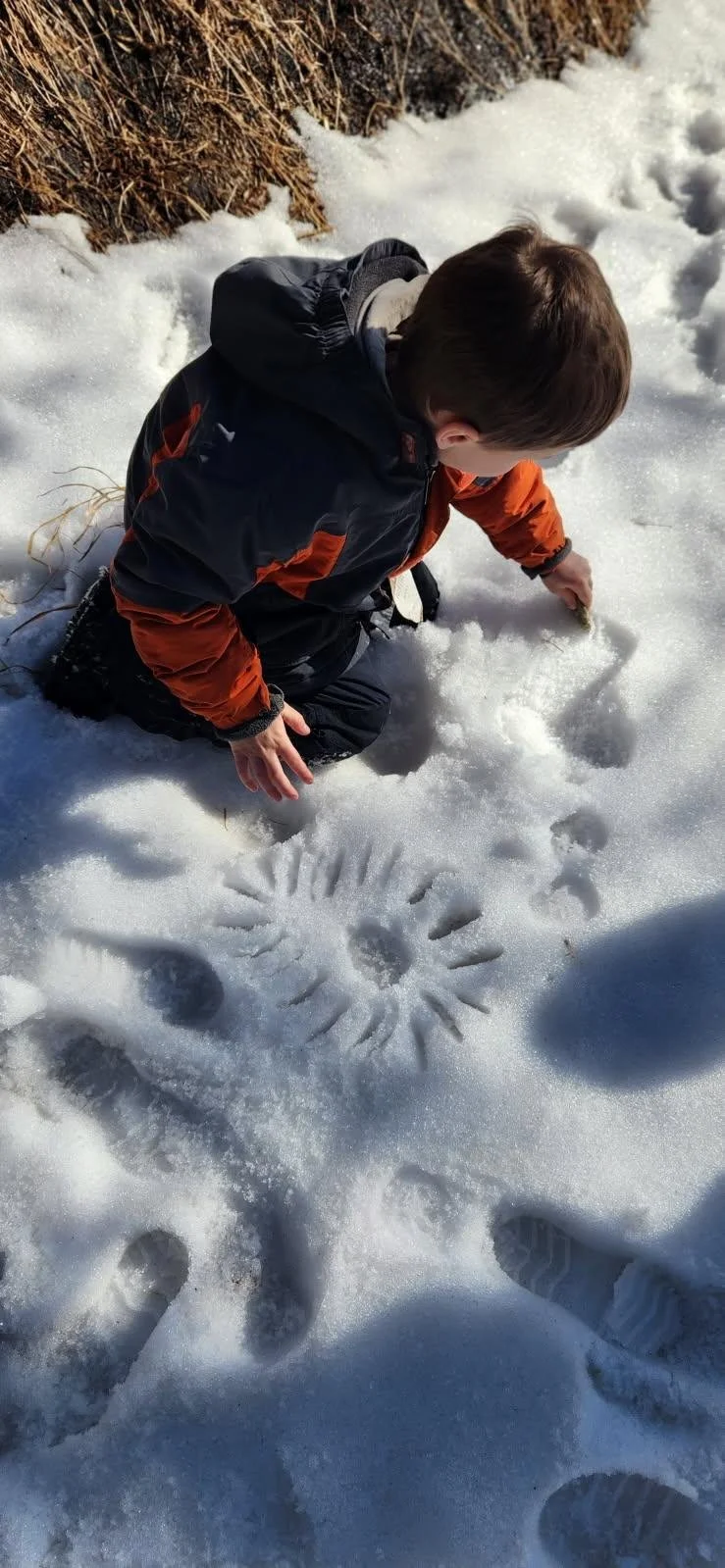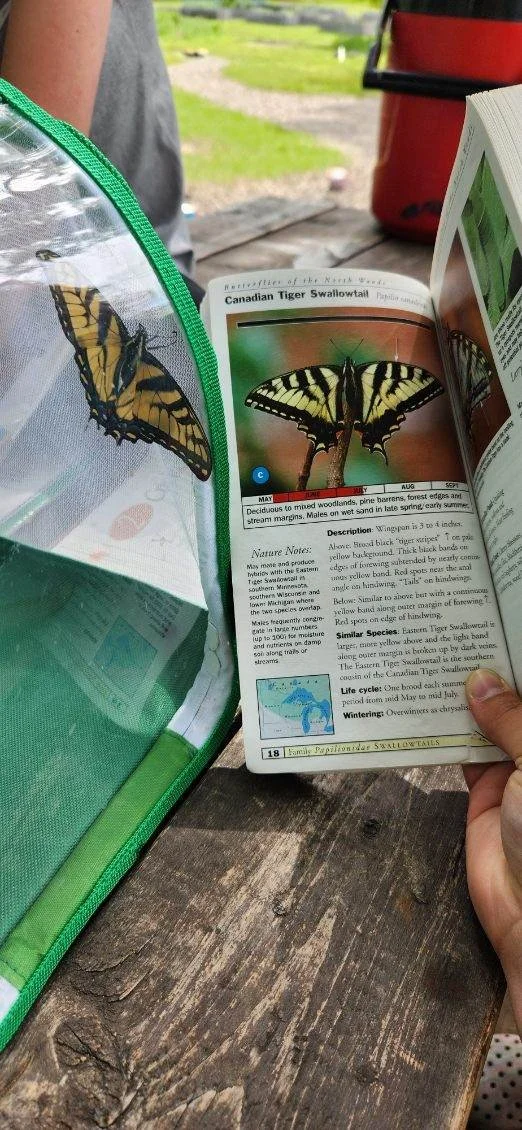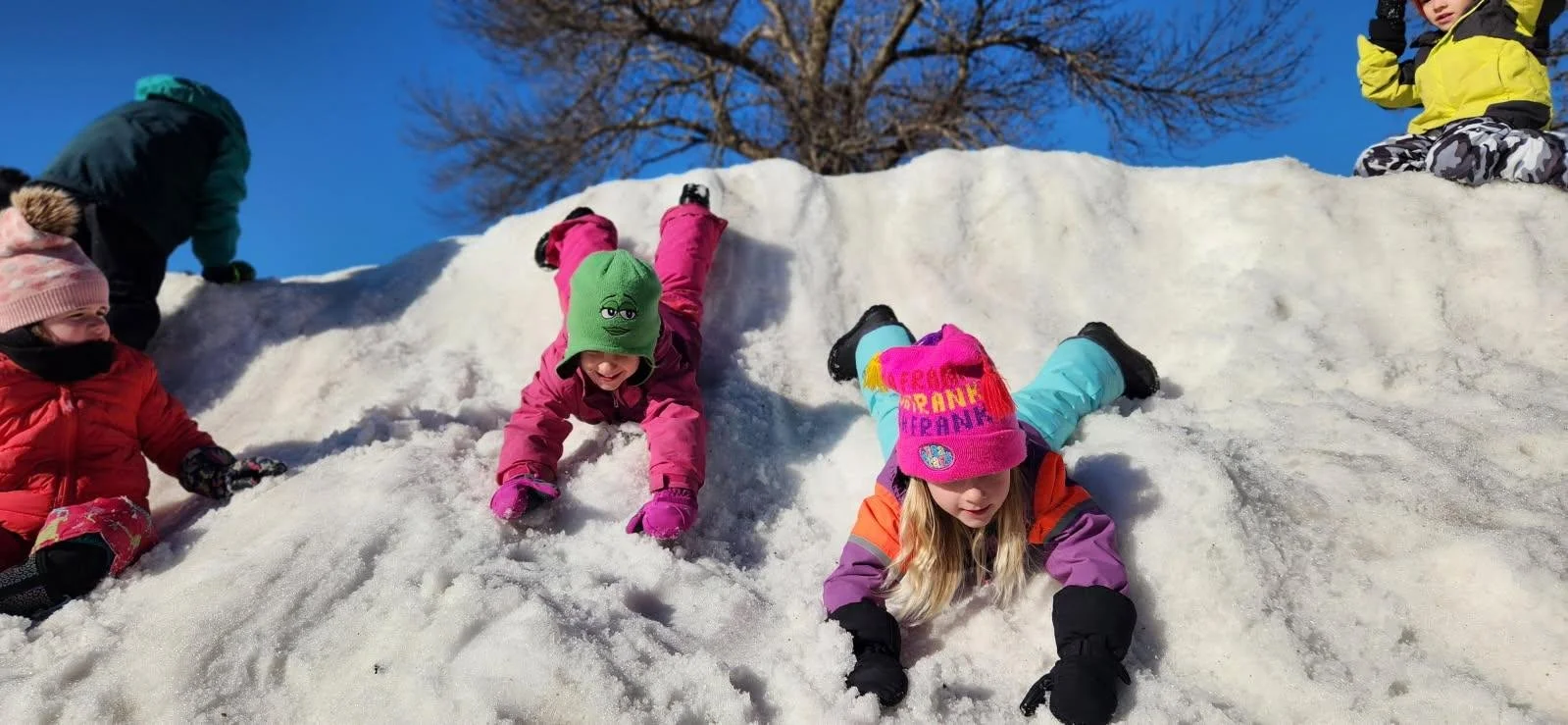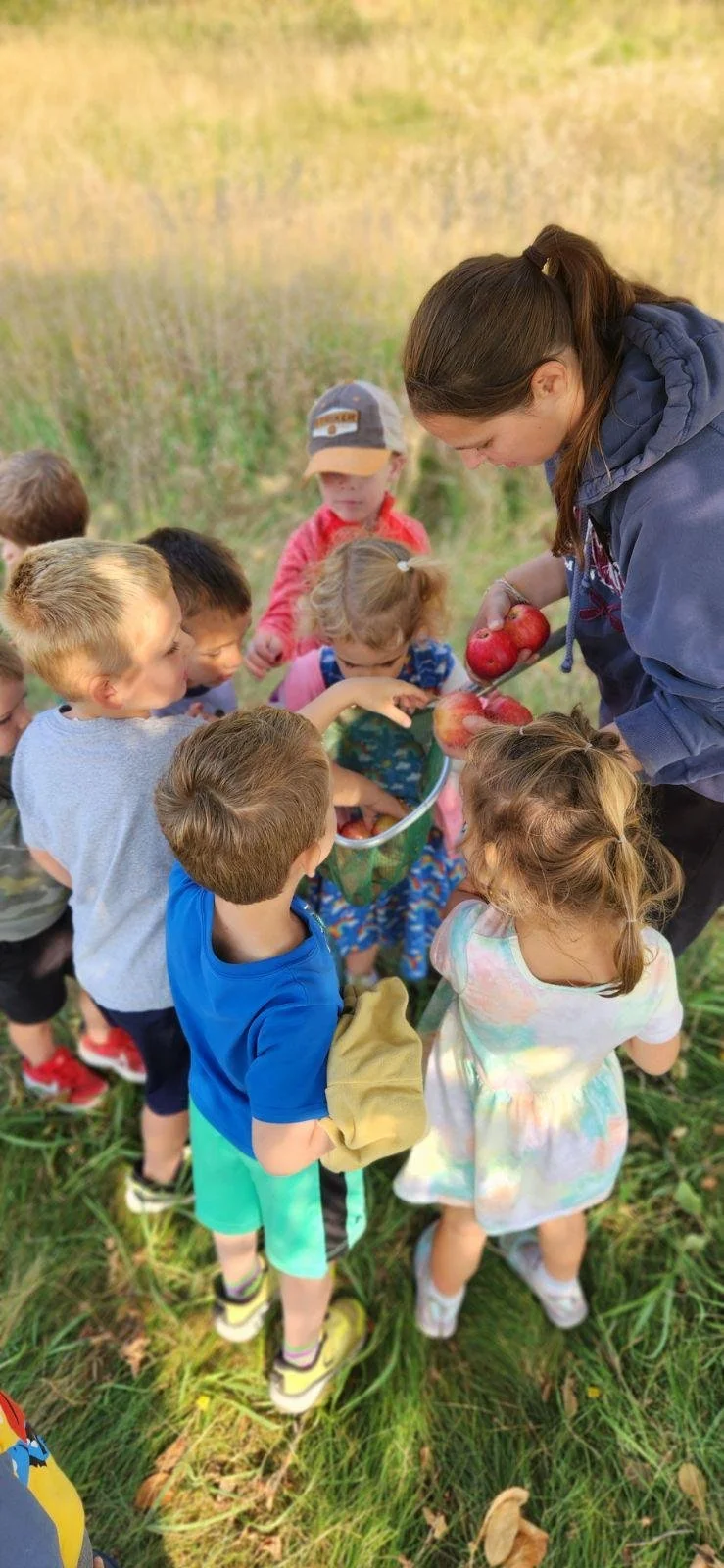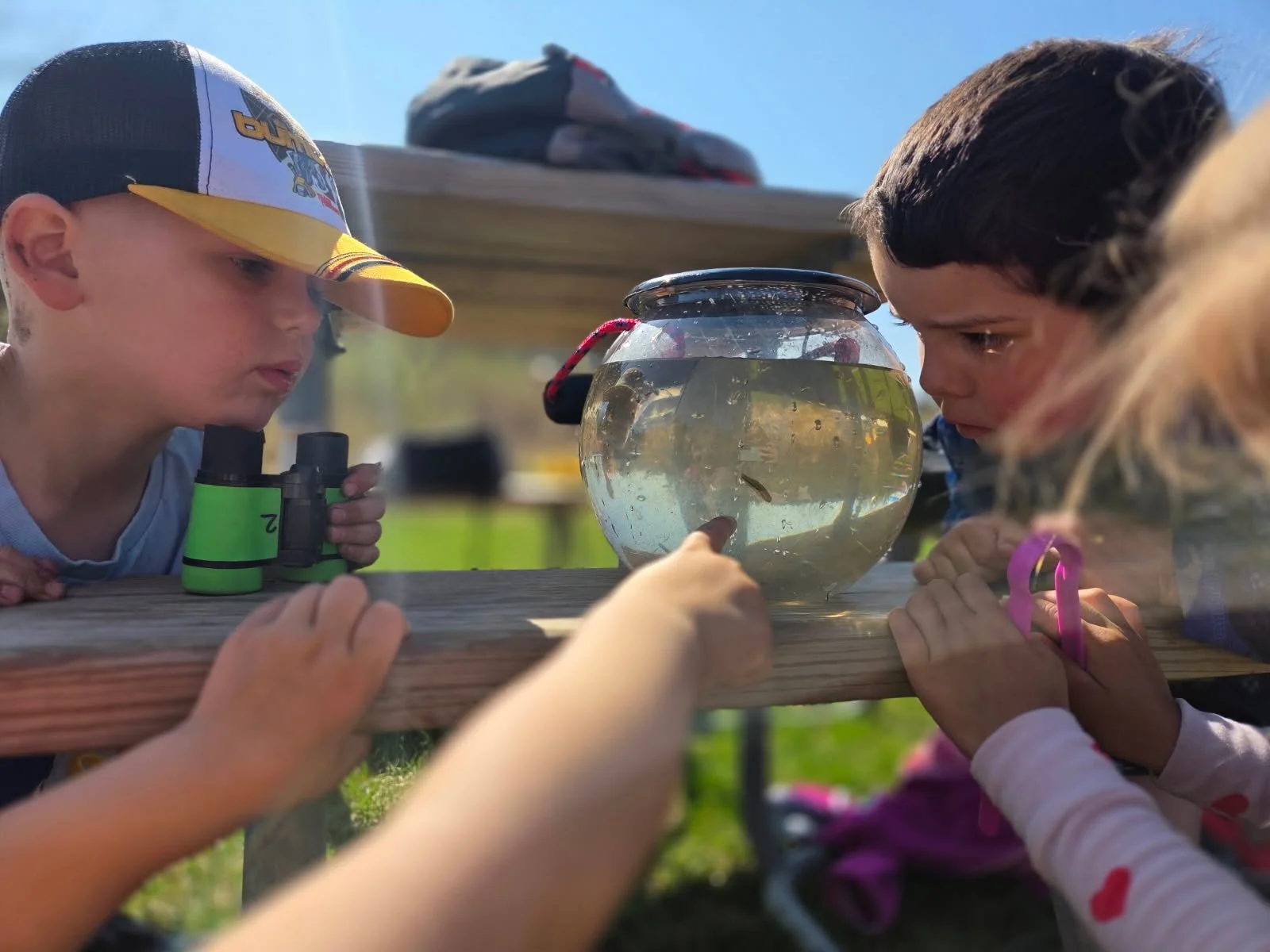
What is Forest School?
Forest school is an educational approach that was developed in the 1950's in Sweden and Denmark. In forest school, children spend time outdoors in local woodlands, county parks, prairies and/or any space that is wild and green! Forest school is essentially a classroom without walls.
Forest School Principles:
Takes place in a variety of spaces, including local forests, creeks, meadows, prairie grasses, natural playgrounds, and outdoor classrooms.
Is a long-term process of regular and repeated sessions in the same natural space.
Is rooted in building an on-going relationship to a place and on principles of place-based education.
Is rooted in and supports building engaged, healthy, vibrant, and diverse communities.
Aims to promote the holistic development of children and youth.
Views children and youth as competent and capable learners.
Supports children and youth with supportive and knowledgeable educators to identify, co-manage, and navigate risk. Opportunities to experience risk are seen as an integral part of learning and healthy development.
Requires qualified Forest and Nature School practitioners who are rooted in and committed to FNS pedagogical theory and practical skills.
Requires that educators play the role of the facilitator rather than the expert.
Uses loose, natural materials to support open-ended experiences.
The process of learning is as valued as the outcome.
Requires that educators utilize emergent, experiential, inquiry-based, play-based, and place-based learning approaches.
What Happens at Forest School?
The happenings at forest school vary from season to season, day to day, and hour to hour! Activities also vary depending on the age of the children, community landscape, what the weather did the morning before class, how long the children have been together as a group, provocations set up by the forest school teachers, and most importantly, where the interests of the children lead the morning. You may see children collecting rocks, building dens, working with clay harvested from a creek bed, weaving with tree branches, balancing on logs, writing their names in mud (or snow), and painting stumps. Playful learning in a forest school environment means that all domains of the MN Early Childhood Indicators of Progress are met daily.
A sample daily routine:
Arrival, song and story, safety talks
Hike to base camp
Uninterrupted, child-directed free play and discovery
Gather to eat snack and storytelling
Hike out of camp
The Benefits of Forest School Field Trips
When children spend time outdoors, they develop a connection with the natural world. This reduces stress, improves self regulation and self concept, improves physical development, as well as makes children happier in general. By connecting children with nature, we help to create the next generation of environmental stewards. The benefits are endless!
Potential benefits of participating in forest school:
Improved confidence, social skills, communication, motivation, and concentration;
Improved physical stamina, fine and gross motor skills;
Positive identity formation for individuals and communities;
Environmentally sustainable behaviors and ecological literacy;
Increased knowledge of the environment, increased frequency of visiting nature within families;
Healthy and safe risk-taking;
Improved creativity and resilience;
Improved academic achievement and self-regulation;
Reduced stress and increased patience, self-discipline, capacity for attention, and recovery from mental fatigue;
Improved higher level cognitive skills.
Who Will Participate in Forest School?
Forest school is offered as an optional enrichment program for eligible students who demonstrate readiness based on safety and developmental considerations. Families who choose to participate will receive a weekly schedule so they know which day(s) their child will attend forest school. Led by our experienced forest school teachers, children travel by bus to local county parks for hands-on, nature-based learning. These off-site experiences support curiosity, independence, and a deeper connection to the natural world.
Families of participating students pay a forest school program fee of $20 per month, which is automatically withdrawn along with regular tuition on the first of each month. A Forest School Scholarship Fund is available to ensure all children can participate if their family desires. Additional program details will be shared prior to the start of each session.
Forest School Readiness Considerations
To ensure a safe and positive experience, the following factors are considered when determining a child’s readiness to participate in forest school:
Must be 4 years old by December 31 of the current school year
Demonstrates stamina for a full morning outdoors
Able to hike distances typically covered at the county parks
Able to listen to teachers and follow safety instructions
Fully independent in bathroom use
Able to independently put on and manage outdoor gear
Feels ready to ride the bus
Able to remain within designated areas and not wander away
Forest School
